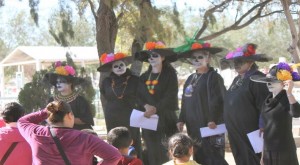Minga brings health information to women of the Amazon
|
They travel miles and days by canoe, winding down Amazon River waterways that are infested with malaria-carrying mosquitoes and exotic insects. Mostly women, they paddle through an environment that hides all types of predators, both human and animal, just to deliver a letter to the local mailman. The authors of these letters live along the huge snaking maze of the Peruvian Amazon, where indigenous communities play a vital role in the writing and producing of a radio show called, “Welcome Health.” The show, which is aired twice daily, broadcasting through out the vast jungles of Peru, is part of a series of community-based projects facilitated by Minga, a non-profit organization formed in 1998. Their aim was to find ways to convey information to women and children about health, safe sex and prevention of diseases as well as tips on what to do through alternative methods of communication. Eliana Elias is founder and executive director of Minga. “Since the beginning we wanted to organize a project they may build bridges.
Immigrant high school graduates seek a pathway to U.S. citizenship
|
EL PASO, Texas — Many of the 65,000 illegal immigrants who graduate from high school in the U.S. every year live under the entrapment radar, risking deportation at any time as they attempt to attend college or serve in the U.S. military services. According to statistics from the League of United Latin American Citizens (LULAC), most of these students in all grade levels have been raised in America, in American public school systems, American cities. Many only speak English and the American culture is what they know. They have little left of their culture of origin. “It’s a very sad experience to forget where you came from because you’re accustomed to life here. You could hardly remember that you came here from another country,” said a student who wishes to remain anonymous. The student at the University of Texas at El Paso (UTEP) is an illegal immigrant because, like the thousands of illegal high school students who graduate every year in the U.S., this student was not brought to America by choice. The parents made that choice. “It’s a difficult situation.
Chicanos march again against war and racism
|
LOS ANGELES, Calif. — “The workingman gives up his dreams and slaves for all his life,” the impassioned marcher shouted, her voice blaring Chicanoism out of a bullhorn that echoed down the streets of East Los Angeles. Hundreds of sign-wielding activists marched in the streets to mark the 40th anniversary of the National Chicano Moratorium of the Vietnam War August 27. The Moratorium, which was implemented by the Chicano movement back in 1970, protested the exploitation of minorities, especially Latinos in the Vietnam War. The march followed the original 1970 route, in East L.A., down Whittier Boulevard, passing the Silver Dollar, the bar where Ruben Salazar, a Juarez-El Paso native and acclaimed war and human rights journalist was killed 40 years ago during the first moratorium march.
